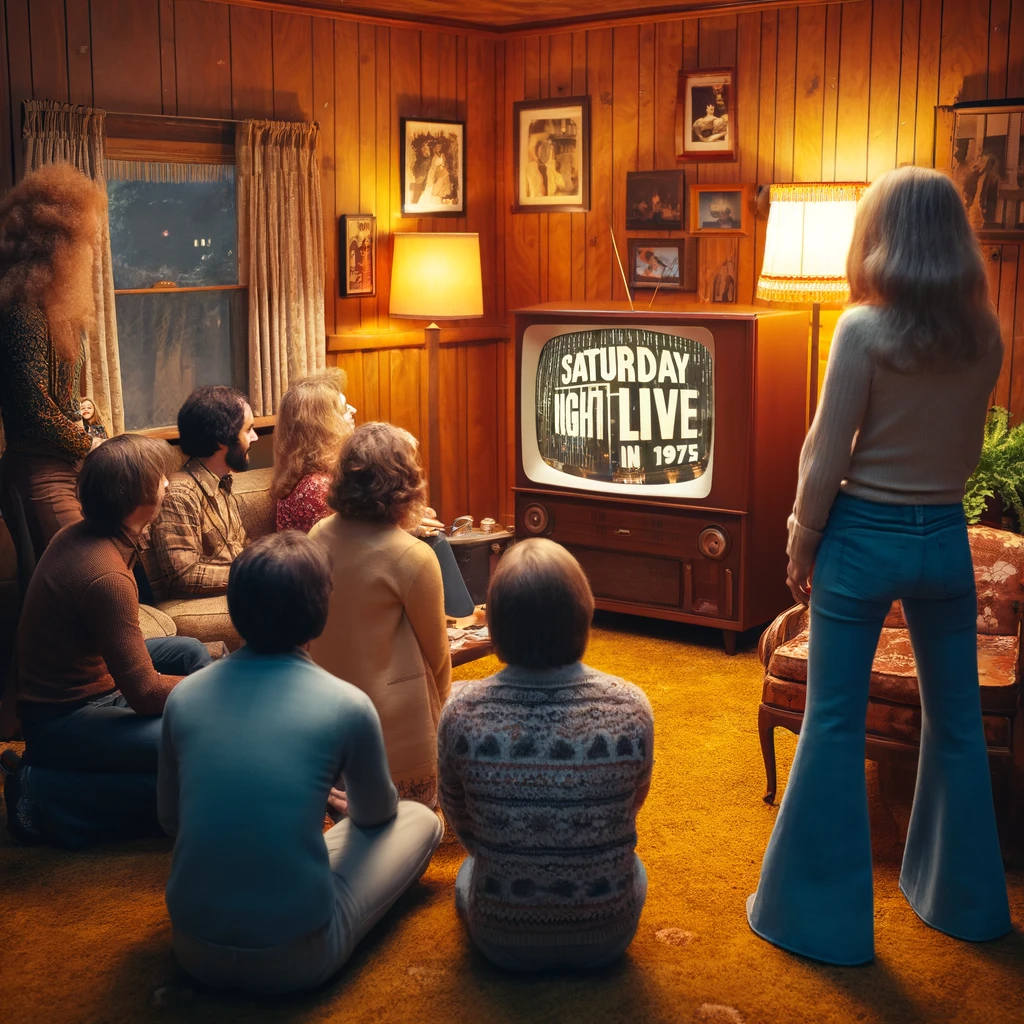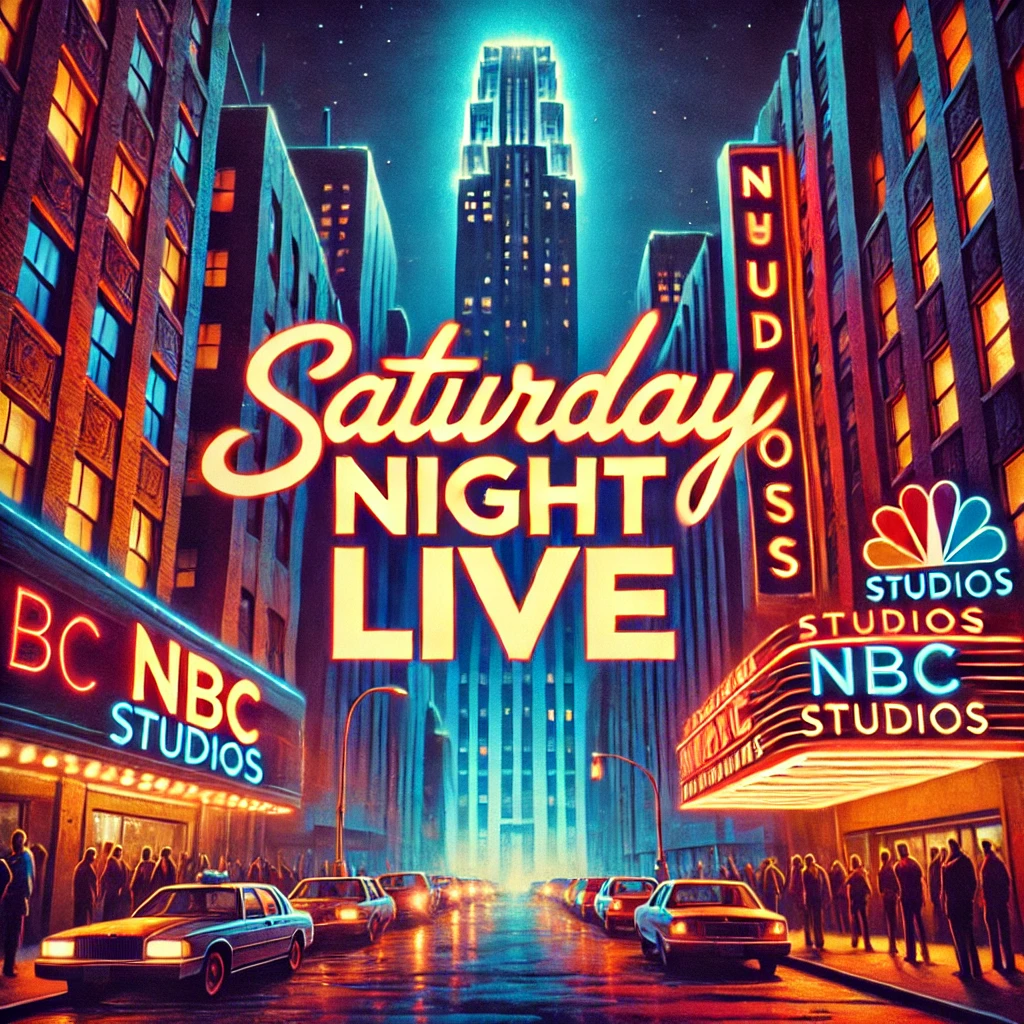On October 11, 1975, Saturday Night Live (SNL) premiered on NBC, marking the beginning of a television revolution in sketch comedy and variety programming. Created by Lorne Michaels, SNL was designed to blend comedy, music, and cultural commentary, quickly becoming a cultural touchstone and an influential force in American entertainment. Its innovative format and willingness to tackle contemporary issues set the stage for a new era of television that resonates to this day.

The Birth of a Cultural Phenomenon
The concept for Saturday Night Live emerged from a desire to create a show that would capture the essence of American pop culture in a live format. Combining comedic sketches with musical performances, the show was designed to be both entertaining and relevant, reflecting the political and social climate of the time. Lorne Michaels assembled a talented cast that included comedians and actors who would go on to become household names, such as Chevy Chase, Gilda Radner, and John Belushi.
The first episode of SNL featured an array of sketches that poked fun at politics, society, and the cultural landscape of the 1970s. The show’s unique blend of satire, absurdity, and irreverence quickly captured the attention of audiences. SNL’s live format added an element of unpredictability, making each episode a unique experience. This innovative approach set it apart from other television shows of the era and laid the groundwork for its enduring popularity.

A Platform for Comedy and Commentary
SNL became known for its sharp political satire and cultural commentary, often addressing pressing social issues through humor. The show’s “Weekend Update” segment, a satirical news broadcast, provided a platform for comedians to deliver biting commentary on current events and public figures. This fearless approach to satire resonated with viewers, particularly during a time of significant political turmoil in the United States.
The show’s willingness to take risks and tackle controversial topics allowed it to remain relevant over the years. SNL became a breeding ground for some of the most memorable comedic characters and sketches in television history. From the “Coneheads” to “The Blues Brothers,” the show’s influence on popular culture was undeniable, as it introduced iconic moments and catchphrases that have become ingrained in American lexicon.
Impact on the Entertainment Industry
The success of Saturday Night Live not only transformed late-night television but also had a profound impact on the entertainment industry as a whole. It set a new standard for sketch comedy shows, inspiring numerous imitators and leading to the creation of similar programs. The format of combining comedy with musical performances became a template for many future variety shows, while SNL’s ensemble cast model influenced the development of ensemble comedies in the years to follow.

Moreover, SNL became a launching pad for aspiring comedians and actors, many of whom would go on to achieve significant success in film and television. The show’s ability to showcase diverse talent contributed to the evolution of comedy in America, giving rise to a new generation of performers who shaped the industry.
Enduring Legacy and Cultural Significance
As Saturday Night Live continues to air into the 21st century, its cultural significance remains strong. The show has adapted to changing times, embracing new technologies and reflecting the evolving landscape of American society. Its ability to stay relevant is a testament to its foundational concept of mixing humor with social commentary.
The debut of Saturday Night Live on October 11, 1975, marked a transformative moment in television history. Its innovative approach to sketch comedy and variety programming, combined with its fearless commentary on contemporary issues, created a cultural phenomenon that continues to thrive today. As we reflect on the impact of SNL, we recognize its enduring legacy as a source of entertainment, a platform for social commentary, and a launchpad for comedic talent. The show’s commitment to pushing boundaries and challenging norms has solidified its place as a landmark in American television, inspiring generations of viewers and performers alike.
